An attempt to improve on mental intake beyond 2018 MSNBC political coverage mixed with minor but pleasant novels, coupled with a need to put some lines in the sand - physically, mentally, socially, professionally, I begin this journey reading the Pulitzer Prize winning novels, peppered with whatever else I want to read. Starting with the 2018 winner and committed to going to the year of my birth - 1960 - and possibly to the start of this award -1918 And in honor of my mom, Anna Lee, famed school librarian and member of Chicago's longest running book club (60 years now?!) who has guided me on the value of reading good books.
Don't wanna be here? Send us removal request.
Photo
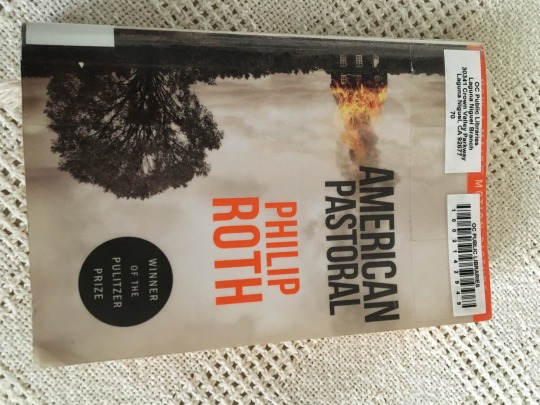
1998, American Pastoral, Philip Roth
Swede Levov was a high school superstar, married to Miss New Jersey and upwardly mobile in his family glove business. From a hard working jewish family, his life appears blessed until our narrator learns that Swede’s daughter Merry has blown up the general store in an anti-Vietnam War act. This book calls attention to the loosely held idea of American life as pastoral, when in reality there has and will always be chaos and division within our culture and often within our own families.
I had two issues with this book. 1. the author asks us to take a leap of faith when the narrator learns that Swede’s daughter committed this act and then tells us he is going to imagine what went down. The rest of the book is the narrator’s imaginings which soon enough is less awkward than the original transition. 2. The story of Merry becomes engaging enough that I want to know how that plays out, but near the close of the book, Roth moves us into a new story line with new characters and closes with that. His style of writing adds quite a bit of detail that is not always central to the story and I found myself skimming due to pages of content that feel like a brain dump, rather than even being divided into paragraphs. Not my favorite Pulitzer book, but glad I read and completed it.
0 notes
Photo
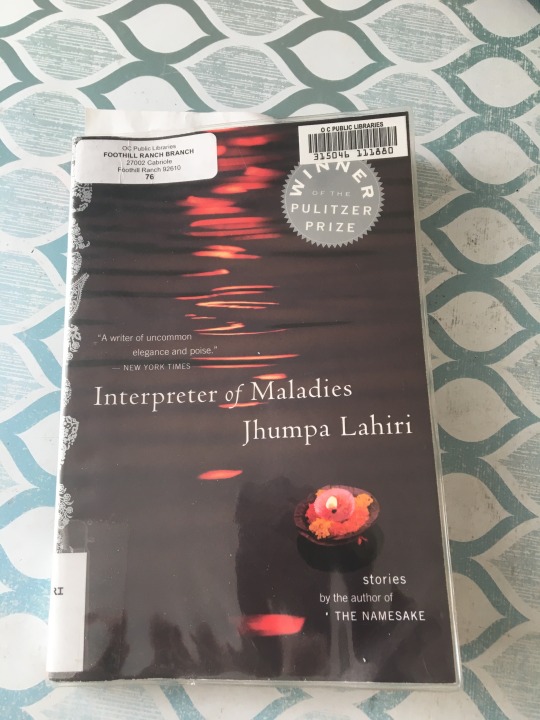
2000, Interpreter of Maladies, Jumpa Lahiri
A collection of short stories to be savored. Lahiri’s characters are so vividly described and the relationships complex as we experience a bit of the Indian immigrant experience in the States. Reading her books, I feel all senses being activated as if actually traveling, envisioning fabrics, colors, aromas and tastes. After each short story, I had to stop myself to pause and appreciate before allowing myself the pleasure of the next story. Jumpa Lahiri remains one of my favorite authors.
0 notes
Photo
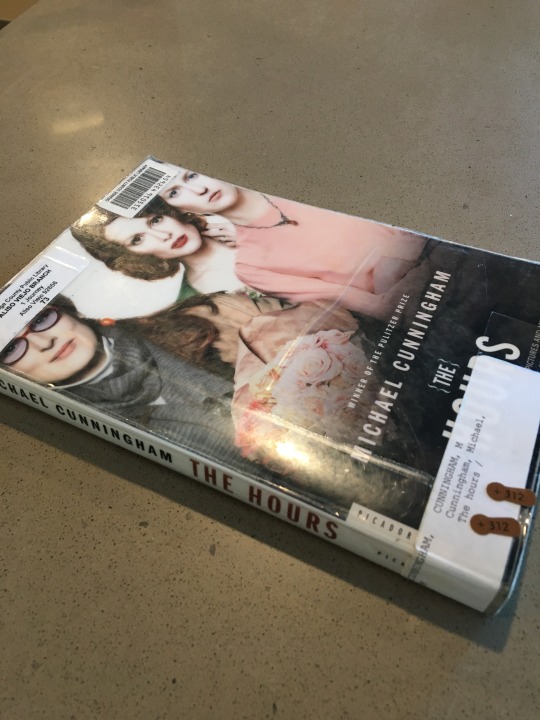
1999, The Hours, Michael Cunningham
I wonder if the Inner dialogue of men is vastly different from those of women. Do they continually think of the gravity of life, of their own joy, their role in the universe? As I know I often do, this book struck me with the force of each of our three female characters’ pondering, especially as each often drifted into melancholy. I did enjoy this book despite not relating to each of the characters and their musings, but appreciating the detail of each of their stories, their relationships and inner lives. Having read Mrs. Dalloway, I was able to appreciate the role that Virginia Woolf and Mrs. Dalloway play. The final pages come together beautifully, with characters and lifelines interweaving and then making far more sense in totality.
0 notes
Photo

2002, Empire Falls, Richard Russo
Small town life felt embodied in the actual reading experience of this book for me. Achingly slow for me at times, with well-worn characters becoming increasingly familiar due to the vast time spent with just these few people. I cannot recall reading a book that did not reach a crescendo until past the 90 percent mark. I knew it was coming but unsure of the components that would soon interact in some clearly upsetting manner. Though it took quite awhile to read, given some odd construct that bounced between characters and time periods, I found it to be so well written with complex characters and interesting relationships. I’d not necessarily recommend this for others, but glad to have finished and enjoyed this.
0 notes
Photo
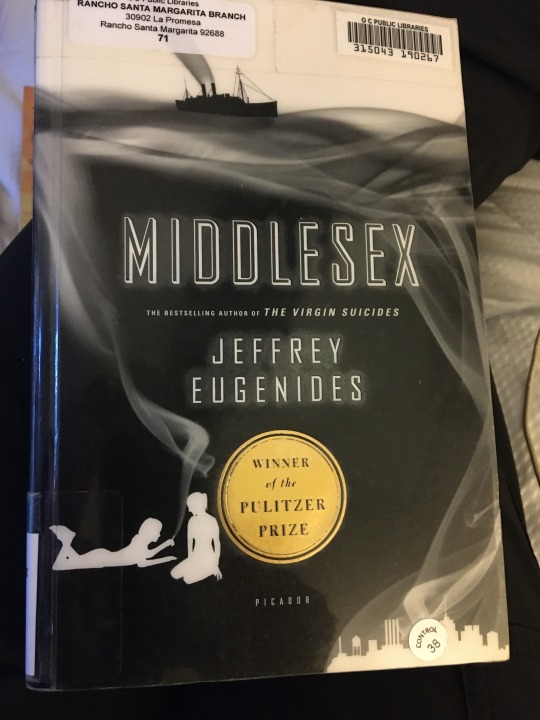
2003, Middlesex, Jeffrey Eugenides
What a masterful book - winding lives, families, relationships, cultures, genders and sexuality into a delicious story that I really savored. Beginning in Greece/Smyrna with a brother/sister romance (improbable yet somehow understandable) to the car culture of Detroit while at peak of Motor City fame, the flow is dynamic and so engaging. In our current era which increasingly recognizes gender fluidity, this 20 year old book could be a useful read for many. It guides us toward understanding the biology of gender, along with a nature/nurture consideration but only as a means to tell this larger and all encompassing excellent story.
0 notes
Photo
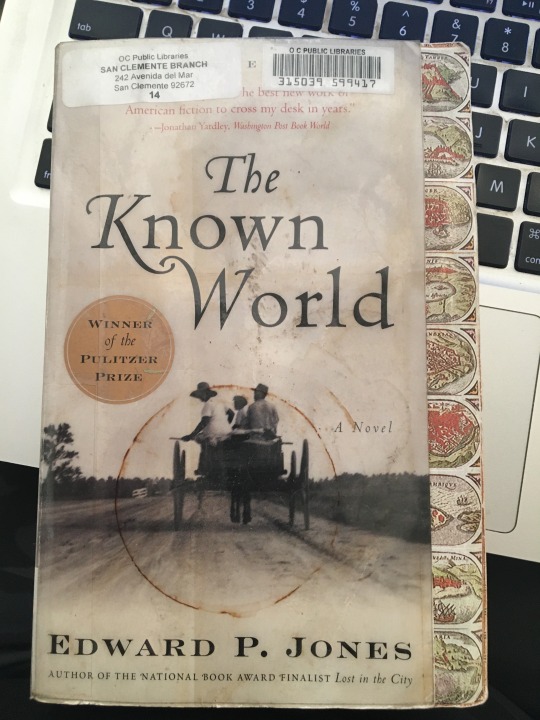
2004, The Known World, Edward P. Jones
ok, new rules. Allowing this project to include “incomplete” as an option. More books about slavery with an already low mood would be against most doctors and therapists orders, sooooo 75 pages in, I feel I’ve read what I needed to read. 1850s slavery epic with Henry, a black slave owner, dying and leaving the plantation’s rule to his wife. An interesting reality in terms of human-ownership; slavery and class consciousness was not just a white consideration, but blacks had their own opportunities to become free and to then subsequently own and rule others. craving something funny and optimistic for next book!
0 notes
Photo
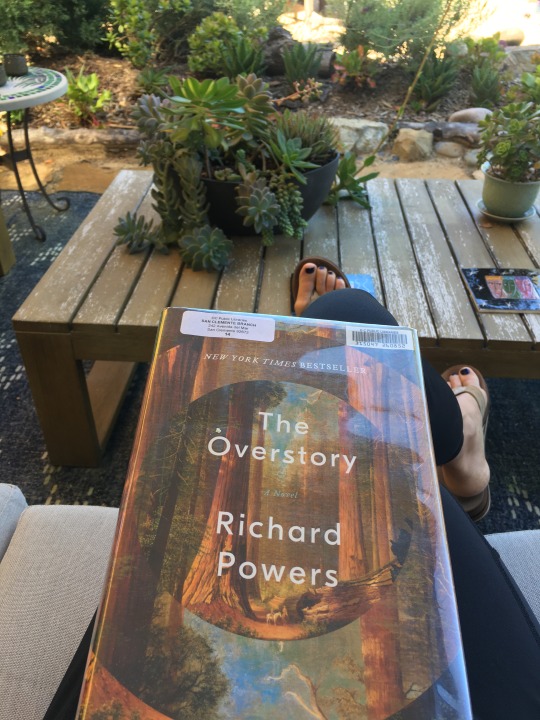
2019, The Overstory, RIchard Powers
Moving forward to this more recent winner (as I started this blog in 2018) is this work of colossal magnitude revolving around, about, and ultimately in support of our planet’s trees. I adore nature and forests and am a tree hugger in the literal sense, so this love of trees spoke to me. The underlying theme of climate crisis at the loss of our ancient forests really spoke to me, as I read this book at the start of the 2020 pandemic. The future of our planet, the climate crisis simmering and the very real ways that humanity has continually destroyed our resources plays out in this book as it relates to the destruction of our forests. It also played out in my mind as I realized the pandemic’s role may serve to wake us up to the fact that we are one global population and that humans can be felled by a virus, while nature and non-human life are now being given a chance to thrive in our short absence.
0 notes
Photo
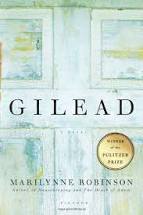
2005, Gilead, Marilynne Robinson
Nature and life’s simplicity can be poetic, even religious when slowed down and savored. Such is the stuff of this highly Christian-based storyline of a dying pastor writing a long letter to his young son’s for his son’s later-life reading. Absolutely way too many references to scripture for me, but skimming past that, I appreciated many of the descriptions and insights as magical, psychologically intuitive, and a very clear reflection on life’s beauty. Of interest was the sub-plot regarding his neighbor/friend’s son whose mistakes led to an errant life and one which had gone astray and how this pious man, but a man nonetheless, cannot help but judge and distrust - a very honest consideration for those who seek morality and consideration to others.
0 notes
Photo
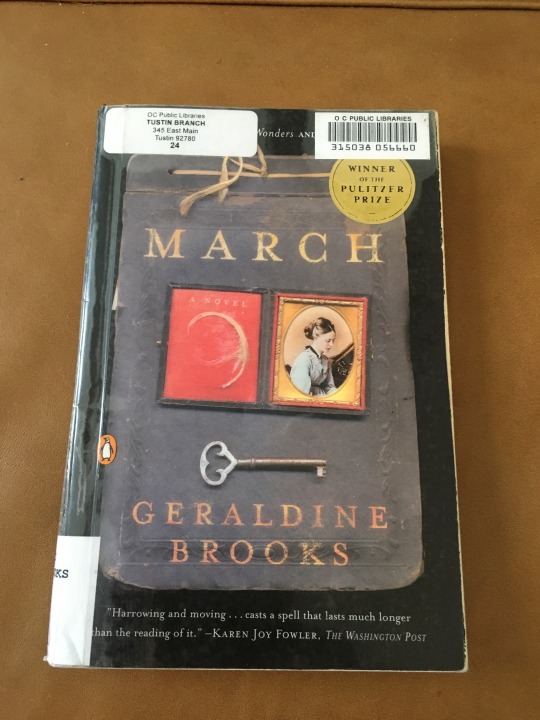
2006, March, Geraldine Brooks
Why so many war novels? Perhaps because the wars are the epitome of drama. Doesn’t mean its enjoyable or even a simple read, but it does deserve major study whether through literature or history given its role in our human history. Ugh, ok, so this book... I did like that Brooks took a pre-existing book from another author and through supposition, created the backstory for what was happening with the missing husband/dad in Little Women. I did like the ability to better understand the civil war efforts and the reality of the post-slavery world as it related to moving beyond the barbarity. I also liked the period-piece nature, I was able to immerse myself in another century with completely different confluence of events, but yet still many of the same challenges of simply being alive, trying to be good, trying to love our families and do right amidst so many trends/influences encouraging the opposite.
0 notes
Photo

2007, The Road
Another book I’d never have chosen to read; clearly a demoralizing/depressing topic but an incredible depiction of post-Apocolyptic America. The telling of this story between father and son - no names just their father/son role and little else - allows the reader to enter the family and empathize as if any father and son or parent/child relationship. We are not told what destroyed the world, but are given hints of an anti-religious bent and so believe this was nuclear war resulting from religious war. The cause is not as meaningful as the experience, the journey along this road, with some hope for a future for the son and for the simple day to day love and commitment between the two. They believe that they “carry the light”, identifying as the good guys in a world now comprised of the utter opposite. The style of writing is dreary but with a dearness in father/son’s very simple dialogue. A reader can only hope for an optimistic ending, but realizes that even with any success for father and son, the reality will still be devastatingly somber.
0 notes
Photo

2008, The Brief Wondrous Life of Oscar Wao
Wao - Wow - this was just amazing. The story of Oscar, his sister, mom, and those in his network of Dominican Republic(ans?) both in NJ and back in the homeland. Cool storytelling that exposed a land, culture, community and a language with such clarity, humor and compassion. Diaz knows this world and added value to his descriptions with continual references in the margins to actual DR history (some I read, most I skipped/skimmed). I was really rooting for Oscar’s success, yet his story ended in a manner I would not have requested, but ultimately realize is what made his life as wondrous as the title.
0 notes
Photo

2009, Olive Kitteridge
Just a wonderful book - it was obvious upon reading as to why it became a movie and why Frances McDormand had to be cast. (I suppose I should watch the movie one of these days.) I just loved the characters and the approach via chapter by chapter reveal of this small towns neighbors and the many lives lives can go right, but mostly wrong. Each chapter a short story, but intertwining with the others for a hearty look at what may be Small Town America. Olive herself is a force and those Chapters with her at the center were my favorite.
0 notes
Text
2010, Tinkers
2010, Tinkers
Ooops, again no photo opp for this dear book. Generations of men and their life stories- a grandpa, his son and grandson are reflected in this petite book (yay, so few pages compared to its Pulitzer sister books!).
The intricate language throughout, along with the focus on household items and clocks in particular, felt in itself to reflect these inanimate and delicately crafted mechanical pieces and the lives lived alongside them.
0 notes
Photo

2011, A Visit from the Goon Squad
Like the music industry, of which this book characterizes, the stories, the pace, the timing, and the rhythms within felt melodic and intertwine as would a great symphony. A reread (and one I reread a few months ago, so current recollection a bit spotty), but I enjoyed it more this time than years before. Somehow, the first time around, I didn’t fully understand the nature of the “Goon” which reflects time itself. The loss of time - the illusion of time - the very real impacts of time over a lifetime (hmmmm, sounds redundant).
0 notes
Text
2013 - no photo to prove this
2013, The Orphan Masters Son
Officially cut off from library renewals, I finally gave myself a pass on this project, having completed less than 100 pages (that I read over and over).
Some subjects and I just do not play well - meaning North Korea, beatings, violence, hopelessness. Maybe I will get back to this post 1960 book entry?
Until then, moved on to rereading “A Visit from the Good Squad”
0 notes
Photo

2015, All The Light We Cannot See
I just adored this book. I read it years ago and not part of this project, so my summary will be brief as will be the case for many on the list that I read at other times.
A big fan of the parallel story telling process that allows entry into separate lives, while the reader assumes the two lives will come together in a real way -any page now?. In this case, taking place in both Germany and France before and during WW2, we are embedded in the stories of two young children. I found myself hoping for romance between them, or at the least a dear friendship, but was satisfied in the end with the overlap of their lives.
Last year, I traveled from Paris to Normandy and very near the area in which our protagonists lives intersected, learning that there is actually a tour (or more than one) to visit the sites within the book. I can fully understand why tourists would opt in for such a tour - if only to remember this book and its endearing characters.
0 notes
Photo

2014, The Goldfinch
Now that I’ve finally finished it, I do not regret the five library renewals it took to get through this 750-plus page book. There’s no denying the stellar writing, the elaborate story telling or the vast research required, but this book really could use a hefty edit.
I appreciated the exposure to both the underworld of crime as well as the super rich with their own loose ethics, following the story of our hero (?) whose life is devastated forever after his mom’s death and then forever inextricably linked to an obscure painting from the 1600s.
I was surprised by the philosophical arc that crystalized nearing the end feeling that I had just read a book based on fantasy and was now moving to the lecture portion. Not necessary.
I thought the book to offer a fun story, albeit the depression, drug overdosing, PTSD, grief, domestic abuse and more. And I can see why readers are polarized in their consideration of this book. Did it deserve the award for best fiction or is it better suited for kids (I know zero children who could read at this level).
Glad to have read it, as I now leave NYC and Amsterdam for North Korea (and the 2014 winner)
0 notes